Hello there! If you're looking to streamline your supplier account verification process, you've come to the right place. In today's business landscape, ensuring that your suppliers meet all necessary requirements is crucial for maintaining efficiency and compliance. We've put together a handy letter template that will guide you through the essential elements to include in your verification request. Dive in to explore the details and make your supplier communication a breeze!
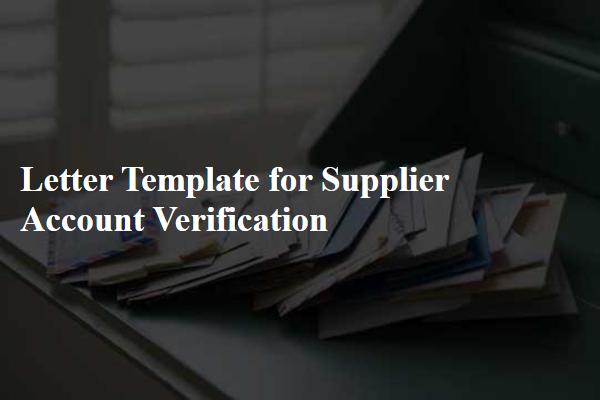
Company Credentials Verification
A supplier account verification process involves confirming the authenticity and legitimacy of a company's credentials. This may include the analysis of the business registration documents, tax identification numbers, and any relevant licenses specific to the industry. Companies may require the verification of the supplier's financial stability through bank statements or credit reports to assess their reliability. Additionally, contacting previous clients for references can further ascertain the supplier's credibility. A successful verification process ensures that the supplier is compliant with industry standards and regulations, ultimately mitigating risks associated with supply chain transactions.
Authorized Contact Information
Supplier account verification requires authorized contact information to ensure compliance and security. This information often includes the supplier's official business name, registered address, primary contact person's name, title, and direct phone number. Additional essential details may encompass the supplier's email address, tax identification number, and relevant business certifications. Accurate data helps prevent fraudulent activities and facilitates smooth communication between involved parties. Verification processes typically involve submission of official documentation, such as business licenses or contracts, to authenticate the account and maintain the integrity of supplier relationships.
Banking and Payment Details
Supplier account verification involves confirming critical banking and payment details provided by the supplier. This process ensures that financial transactions, such as direct deposits and payments, are secure and processed correctly. Key information includes the supplier's bank account number, sort code, and bank name, which must be accurately submitted. Additionally, required documents might include a voided check or a bank statement, validating the supplier's account ownership. Monitoring this verification process helps prevent fraudulent transactions and maintains seamless financial operations within the supply chain.
Tax Identification Numbers
Supplier account verification requires thorough confirmation of Tax Identification Numbers (TIN), which are essential for all businesses operating within the IRS guidelines in the United States. Each TIN, ranging from nine-digit Employer Identification Numbers (EIN) to Social Security Numbers (SSN), facilitates accurate tax reporting and compliance with federal regulations. Businesses must ensure that their suppliers provide valid TINs to avoid penalties and maintain legal operational status. Proper verification can significantly streamline the procurement process and foster a trustworthy relationship between suppliers and clients. Consistent updates and audits of supplier information enhance financial security and can identify discrepancies before they escalate into larger issues.
Business Operation Licenses
Supplier account verification requires detailed scrutiny of essential documentation including business operation licenses. These licenses, issued by local or national authorities, validate the legitimacy of a business entity and its compliance with regulatory standards. In various regions, specific criteria such as the types of products or services offered impact the license requirements. For instance, in California, a seller operating in the retail sector must secure a seller's permit, while a food service business needs health department approvals. Furthermore, renewal dates and expiration timelines should be monitored closely, as lapsed licenses can lead to operational interruptions and legal issues. Accurate verification of these licenses ensures a trustworthy supply chain and fosters business integrity.

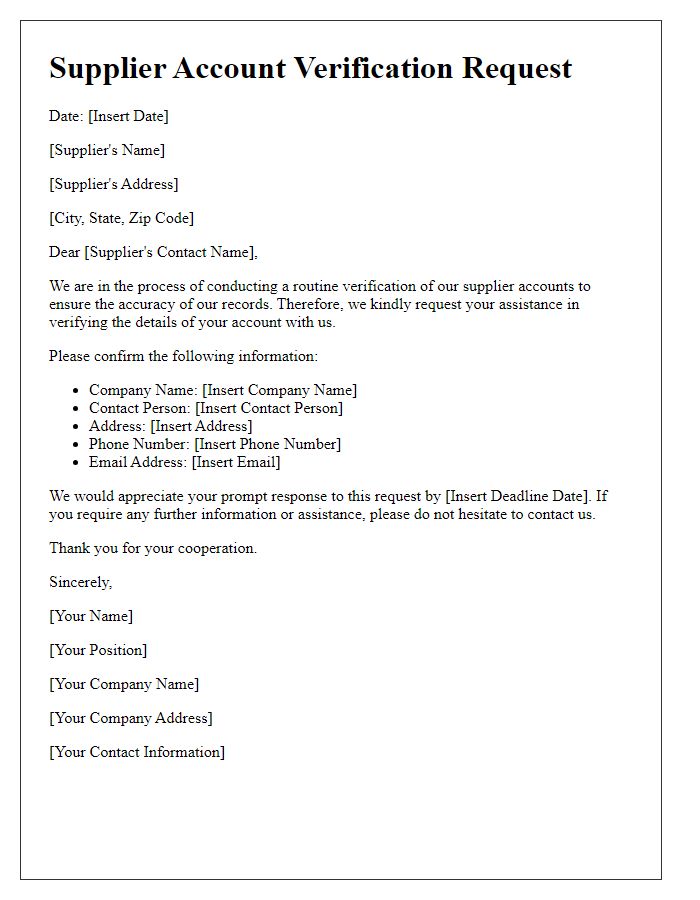
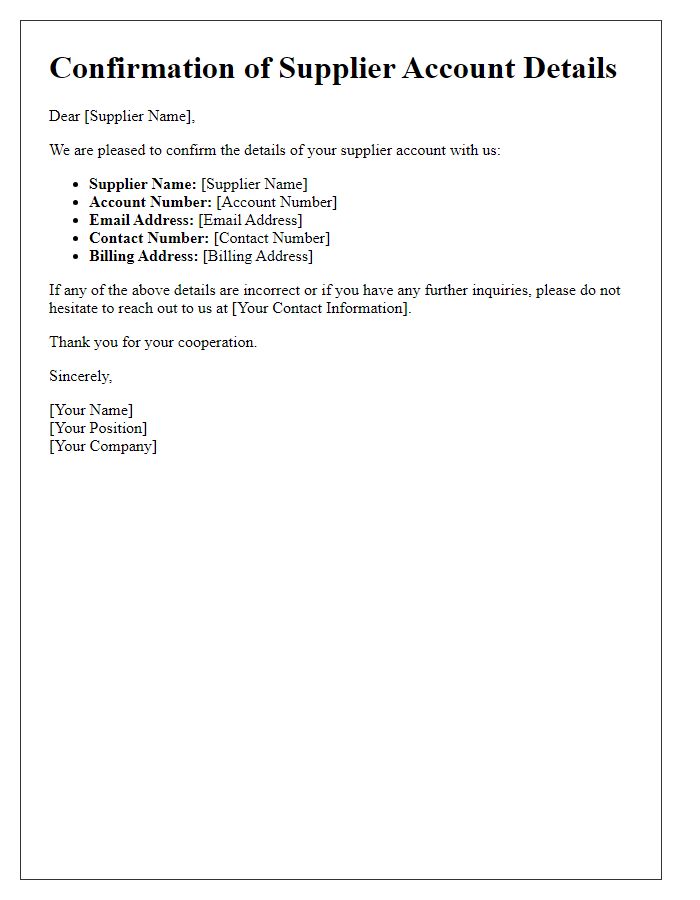

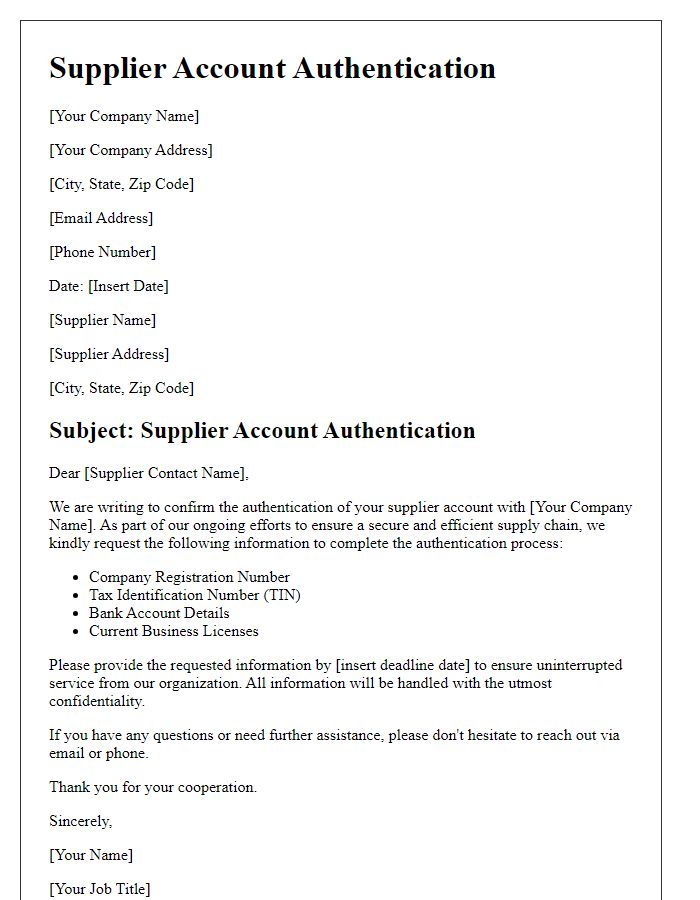
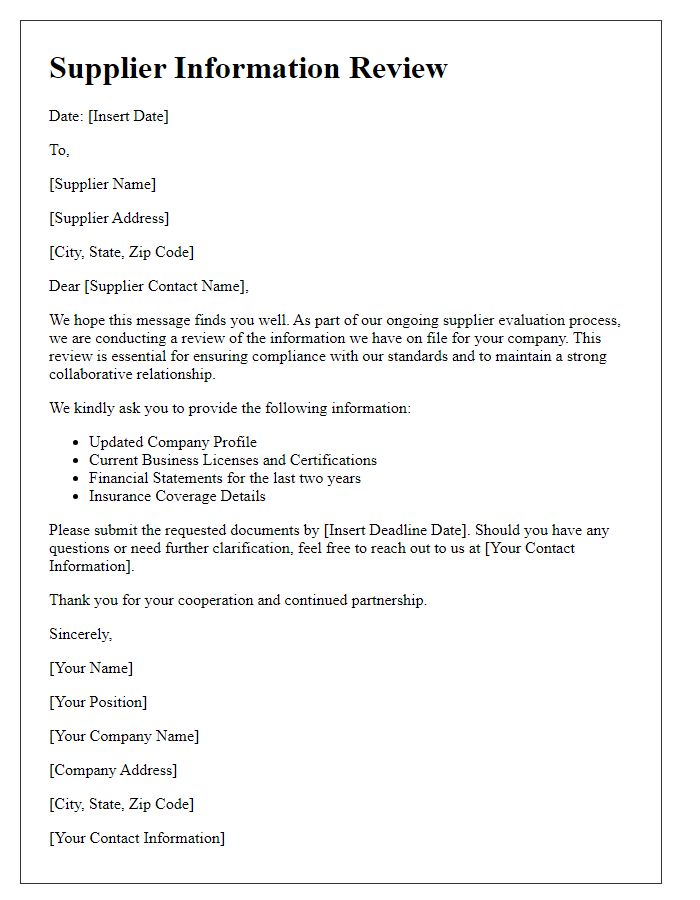
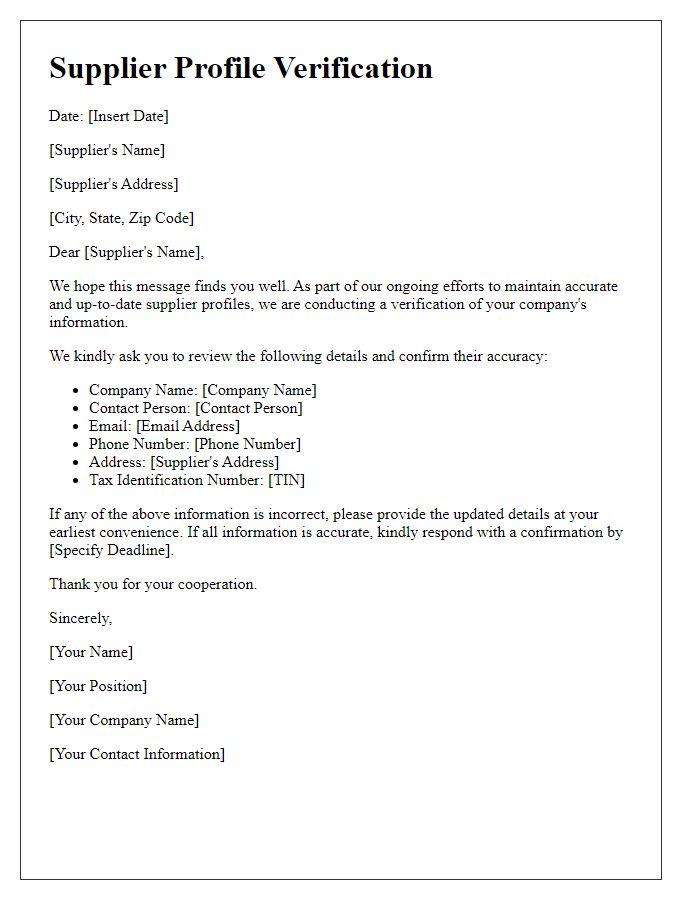
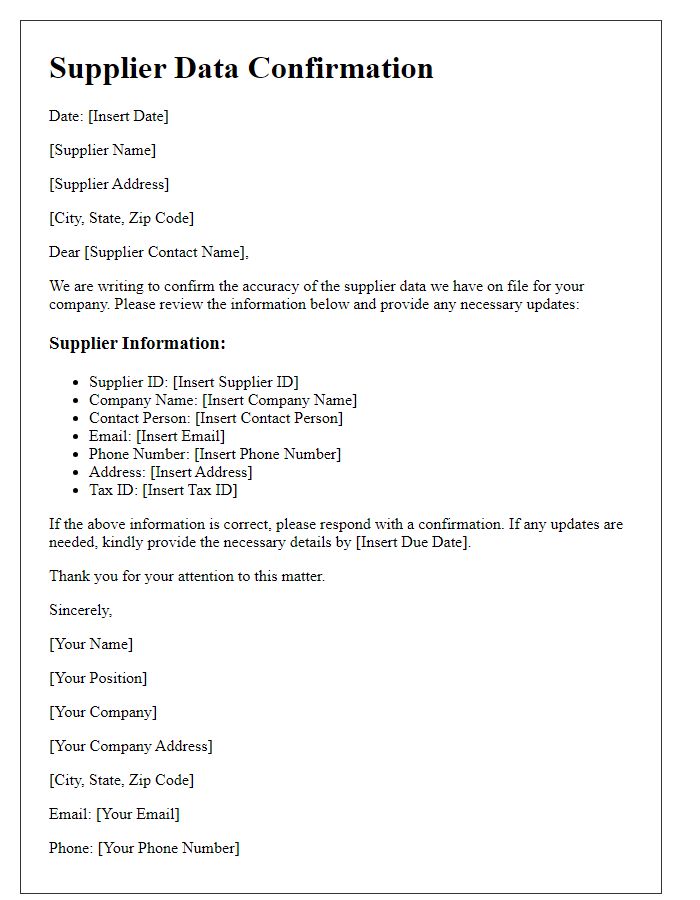
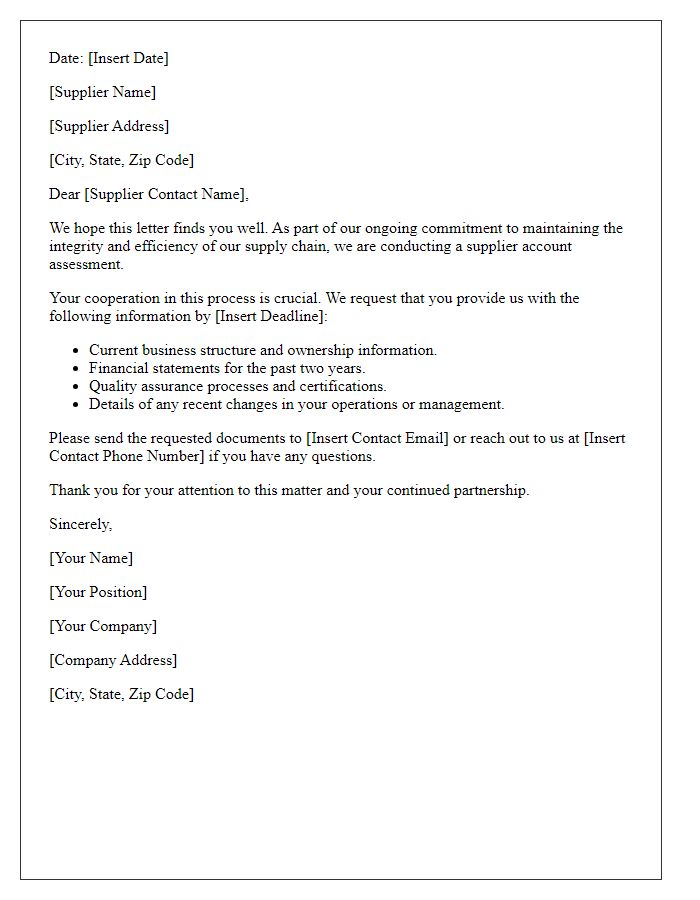
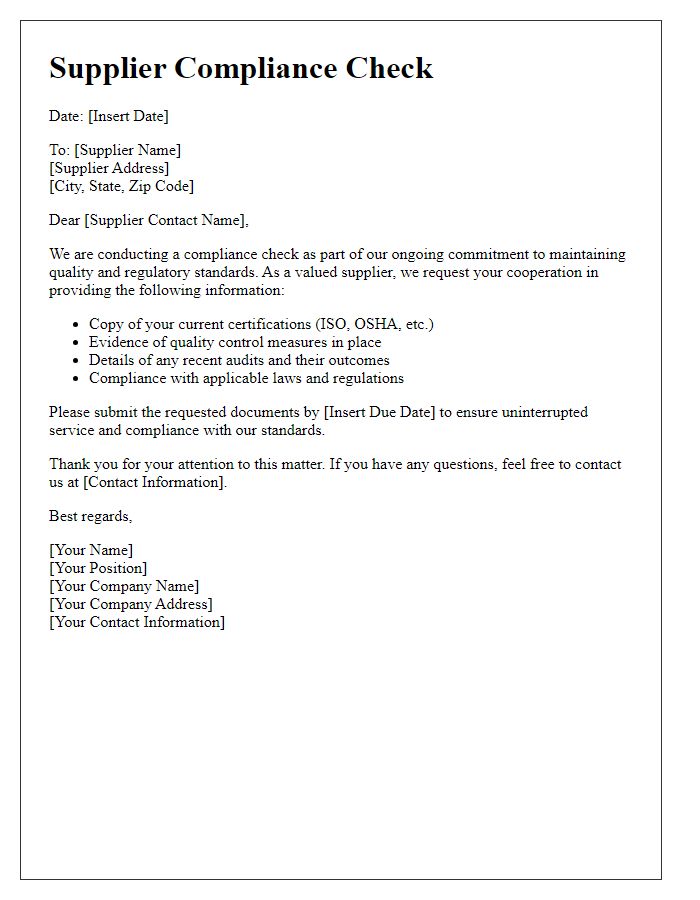
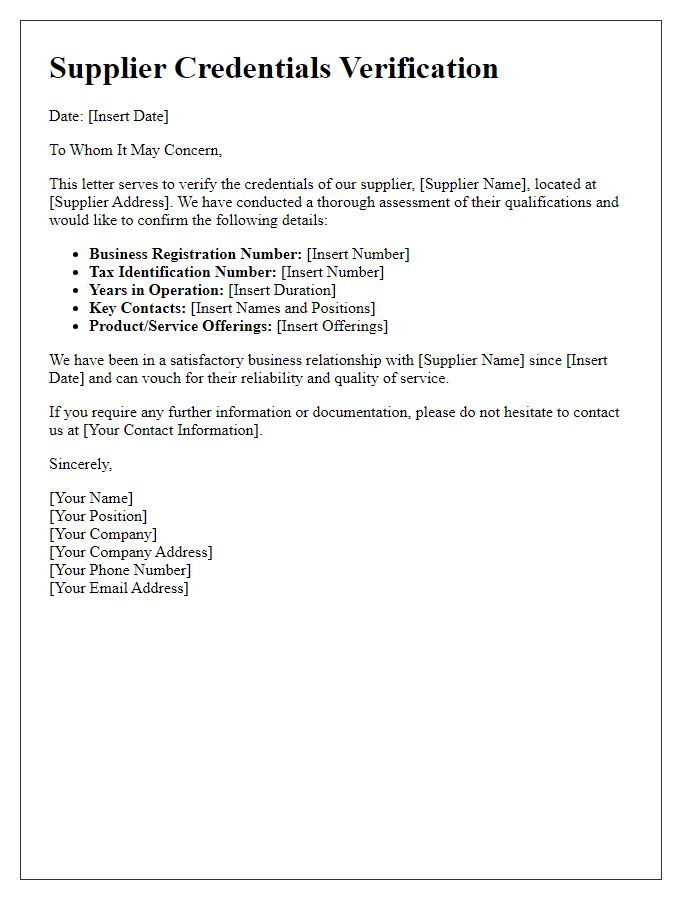

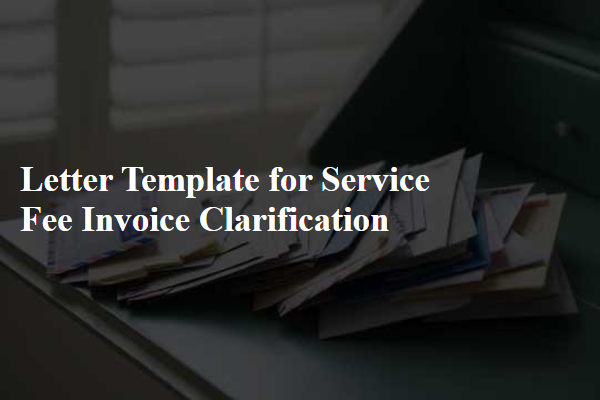
Comments